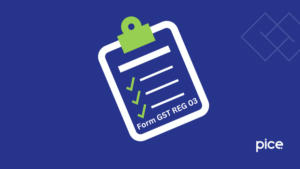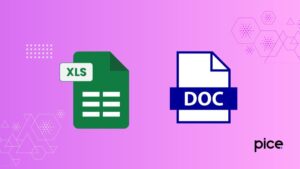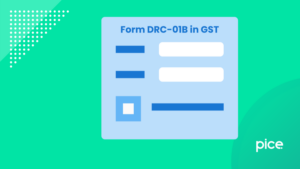TDS and TCS Under GST
- 25 Nov 24
- 7 mins
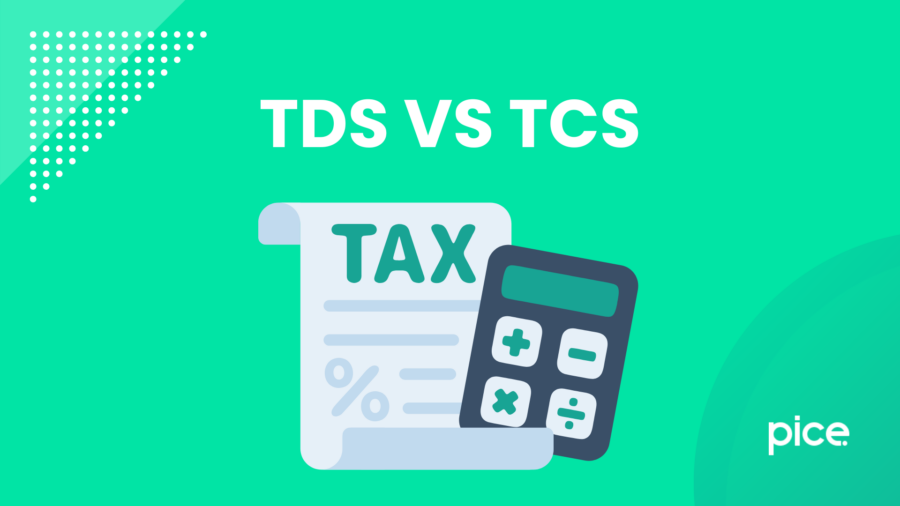
TDS and TCS Under GST
Key Takeaways
- TDS is deducted at payment, while TCS is collected at the point of sale.
- Both TDS and TCS ensure timely tax compliance and prevent evasion.
- Non-payment of TDS or TCS attracts penalties, interest, and legal consequences.
- TDS optimizes income tax returns, whereas TCS relates to indirect taxes.
- Clear understanding of TDS and TCS aids businesses in seamless GST compliance.
TDS and TCS under GST are vital tax components charged by government departments to ensure proper tax collection. These taxes must be collected, deducted, and deposited with the appropriate authorities through mechanisms like the electronic cash ledger. Both processes play a significant role in the e-commerce sector, public sector undertakings, and other industries.
Often, people confuse the terms Tax Collected at Source (TCS) and Tax Deducted at Source (TDS), using them interchangeably. In this blog, we explore their distinctions and relevance to e-commerce platforms and businesses handling interstate supplies.
What Is TDS?
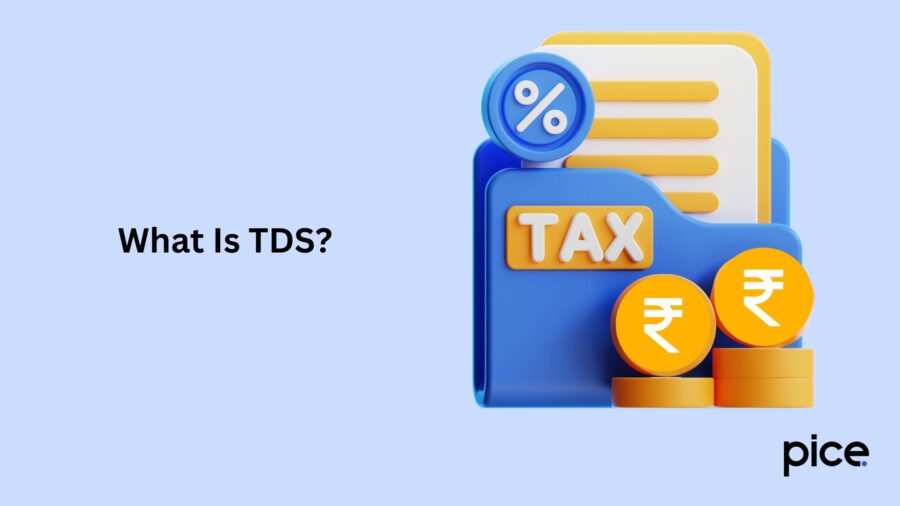
Tax Deducted at Source (TDS) refers to a mechanism where a payer (such as an employer or e-commerce operator) deducts a predetermined amount before disbursing payments like vendor payments, salaries, technical services fees, or other forms of income. This payment, after deduction, is later deposited with the government on behalf of the payee. Form GSTR-7 allows for the declaration of TDS deductions on the unified portal.
TDS ensures a steady revenue stream for the government while simplifying tax compliance for businesses by reducing excess taxes payable at year-end. It is levied on different forms of transactions like salaries, professional fees, dividend payouts, interest, rental income, etc. It is a measure that ensures output tax liability is addressed promptly. Online sellers can monitor their TDS filings through Form GSTR-8.
What Is TCS?
Tax collection at source is a straightforward process where a seller collects a margin of the purchaser’s percentage of tax during the time of supply. TCS applies primarily to transactions involving specific goods and services, especially in unorganised sectors. You can notice the TCS component on the overall bill value.
TCS compliance is managed on the GST portal to optimise ITC (Input Tax Credit). In many cases, The electronic ledger on the GST portal also helps offset GST liability for online businesses by providing credit against the payment of salary and operational expenses.
As with TDS, the seller must deposit TCS with government agencies. Some instances where a TCS is imposed are the sale of scrap, minerals, or certain commodities or services.
What Is the Difference Between TDS and TCS?
To learn the key differences between TDS and TCS under GST, we recommend you go through the table provided below:
| Parameters | TDS | TCS |
| Applicability | TDS is levied on different types of payments, such as interest, salary, dividends and professional fees | TCS applies to the sale of certain taxable goods and services |
| Point of Deduction/ Collection | Deducted by a registered payer at the time of vendor payments or disbursing salaries | A seller collects TCS from buyers at the time of sale |
| Nature of Transaction | TDS plays a crucial role in income tax return adjustment | TCS is more associated with indirect taxes |
| Rates | TDS rates fluctuate depending on the nature of the transaction and the payee’s income level | TCS rates are predetermined and quoted by the Council for each listed item or service |
| Responsible Party | Deducted by the payer who files it through prescribed forms like Form GSTR-7 | Collected by the authorised seller at the time of sale |
| Legal Provision | Regulated by Sections 192 and 195 of the Income Tax Act 1961 | Governed by Section 206C of the Income Tax Act |
Is TCS Applicable if TDS is Deducted?
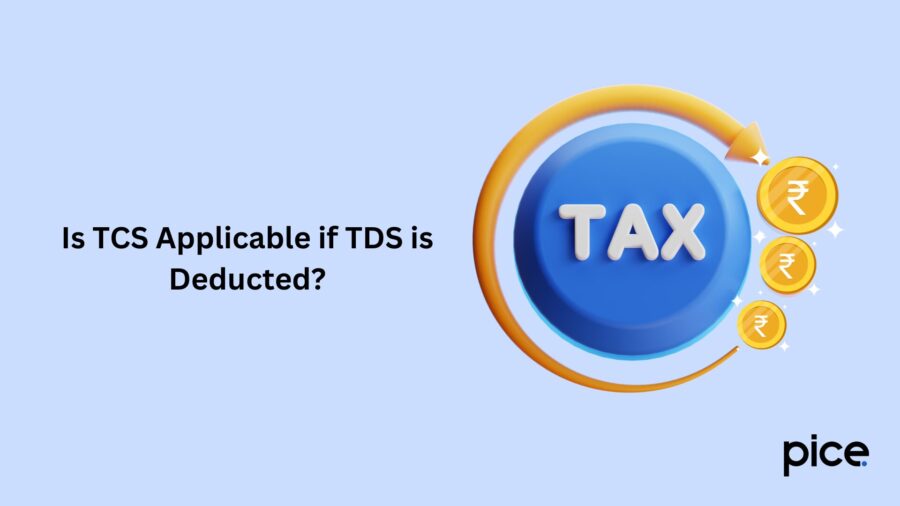
When business contracts involve the supply of goods or services and the registered payer deducts TDS, TCS won’t apply, as per the Income Tax provisions.
What Are TDS and TCS Amounts?
TDS is collected by the payer, such as a business or public sector undertaking, before making payments for goods or services. Conversely, TCS is applied at the time of sale. Both taxes are critical in ensuring compliance with service tax norms and other regulatory frameworks.
Who Will Deduct TDS and TCS?
A GST-registered business deducts TDS before making payments for eligible transactions, such as labour contractors or vendor payments. On the other hand, TCS is collected by the seller at the time of selling taxable goods or services on e-commerce aggregators or e-commerce platforms.
Effects of Failing Timely Payment of TDS or TCS
Failure to meet the prescribed limit or time limit for depositing TDS or TCS can have severe consequences, including:
- Late filing fees equivalent to the TDS or TCS that were either not settled or collected are also taken into consideration.
- The person found guilty will face imprisonment for at least 3 years, and the punishment may extend for up to 7 years.
- In case the registered business does not deposit either the TDS or TCS, then the interest may also be altered.
- The monthly actual tax liability that was otherwise eligible for deduction must be settled interest on.
- The monthly interest rate will be computed at 1-1.5% for every month that is due from tax deductions.
Note: TCS computations on the GST portal are always subject to a fixed interest rate of 1%.
Conclusion
Both TDS and TCS under GST that you see on the GST portal serve as deterrents to tax evasion. By imposing these methods, the Central Government ensures systematic tax collection at the source. It helps establish financial transparency.
Thus, understanding the clear demarcations between TDS and TCS is highly critical for entrepreneurs to tactfully navigate through the business compliance requirements.
💡If you want to streamline your payment and make GST payments, consider using the PICE App. Explore the PICE App today and take your business to new heights
 By
By 





